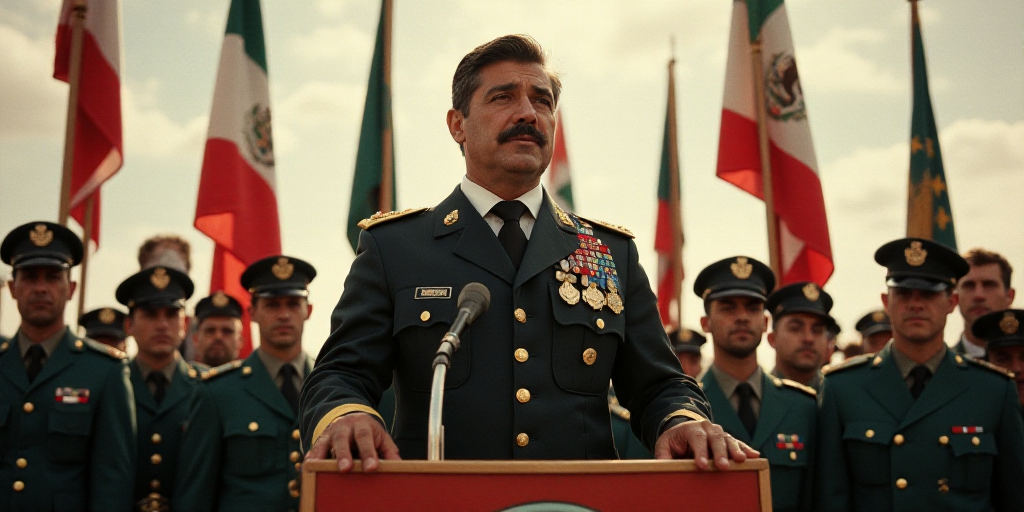Background on Claudia Sheinbaum Pardo and Her Relevance
Claudia Sheinbaum Pardo serves as the Chief Executive of Mexico City, a role equivalent to Mayor in many other countries. As a prominent figure in Mexico’s left-wing Morena party, she has been instrumental in shaping the capital city’s policies and projects since taking office in 2018. Her recent defense of the Ley de Amparo reform highlights her administration’s commitment to judicial efficiency and tax collection without raising taxes.
Ley de Amparo Reform and Its Goals
Sheinbaum Pardo explained that the proposed changes to the Ley de Amparo aim to expedite and ensure a more equitable dispensation of justice while preventing the misuse of amparo as a lifelong shield for tax evasion by powerful individuals.
“Our reform to the Amparo Law guarantees citizens’ rights against any act of authority,” she emphasized, addressing concerns about potential authoritarianism.
Addressing Autoritarism Accusations
Sheinbaum Pardo firmly rejected accusations of authoritarianism, asserting that Mexico operates under a regime respecting liberties and human rights.
“There is no censorship or repression here. The Union’s powers are elected by the citizenry. Democracy and freedom thrive more than ever in Mexico,” she declared.
Government Achievements and Ongoing Projects
During her speech, Sheinbaum Pardo highlighted the successes of strategic government projects such as:
- The Tren Maya, which has already transported 1.7 million passengers since its inception.
- The Felipe Ángeles International Airport (AIFA), which has moved 15 million passengers and one million tons of cargo.
- Refinería Olmeca now produces 270,000 barrels of petroleum daily.
- The official naming of the new train connecting Mexico City and Nuevo Laredo as “Tren del Golfo de México.”
She also mentioned ongoing ferroviary projects, including the Mexico City to Pachuca and Querétaro to Irapuato lines, as part of the Mexico City-Nogales corridor.
Furthermore, she announced the progress of the Plan México, which includes 23 Polos de Desarrollo para el Bienestar (Development Poles for Well-being) focused on national production, clean energy industrialization, and job creation.
“By 2025, we estimate that, without raising taxes compared to the previous year, we will collect an additional 500,000 million pesos in the budget for the people,” she assured.
Notable Absences and Criticism
During her address, key cabinet members like Rosa Icela Rodríguez (Secretary of Government), Mario Delgado (Secretary of Public Education), and David Kershenobich (Secretary of Health) were present. However, Marcelo Ebrard (Secretary of Economy) and Omar García Harfuch (Secretary of Citizen Security and Protection) were notably absent.
Opposition parties PAN, PRI, and MC criticized Sheinbaum Pardo for avoiding discussions on the fiscal fuel smuggling ring, medicine shortages, and Mexico’s perceived stagnation.
“They prefer not to address the multi-million dollar fuel smuggling fraud, which involves high-ranking military officials and members of Andrés Manuel López Obrador’s cabinet—a scandal of historical proportions that reveals how they misused power for personal gain,” said Manuel Añorve, coordinator of the priistas in the Senate.
Clemente Castañeda, an emecista, echoed similar sentiments via social media, stating that Sheinbaum Pardo avoided discussing the fuel smuggling fraud affecting high-ranking naval officers and members of López Obrador’s cabinet.
Critics also pointed out what they perceived as hypocrisy in her call for memoria y austeridad (memory and austerity) while Morena leaders enjoyed recent cases of privilege and unexplained wealth.
Héctor Saúl, a PAN deputy, commented on the apparent use of fuel smuggling funds to fill Mexico City’s Zócalo, while Noemí Luna, another federal PAN deputy, accused Sheinbaum Pardo of lying about non-partisan distribution of social programs.






